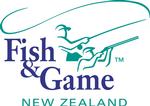Backpack Transmitters Spill Bird Secrets
Ducks in the Bay of Plenty are giving up some of their lifestyle secrets – through radio transmitters they’ve been fitted with in a high flying research project.
Fish and Game attached the transmitters to 50 ducks at Little Waihi near Maketu in January and February, and are now tracking the mallard and grey ducks through beeps the devices send out.
The transmitters fitted to the bird’s backs or tail feathers send out beeps that identify each individual bird. When Fish and Game officers have enough fixes on a bird, they can pinpoint its location.
Senior Fish and Game Senior Officer Matthew Mc Dougall says the information being gathered on range, mortality and harvest rates will help them manage water fowl in the most sustainable manner - for the benefit of hunters. The data will help them understand what happens between the time the ducks are banded in early February, and the beginning of the duck hunting season in May.
“If the population is found to be at certain level, what set of regulations should we use to maximise their harvest over time? If we end up harvesting too many in one year, we might end up affecting following years.”
Matthew says there is a lot of anecdotal evidence that a lot of juvenile birds die during this period, when there is most competition for food.
“If this is the case, we may have to look at what options we have to reduce this loss, especially as these birds are the ones most likely to be shot over the duck hunting season’s opening weekend.” There is no point in letting them die of natural causes when they could be harvested, he adds.
The duck transmitters even tell Fish & Game when a bird dies – by sending a different sort of signal when the bird has stopped moving.
Fish & Game has tracked the birds on land but has also used an aircraft to try and track the birds further afield – as far away Thames and the Waikato.
Matthew is appealing to hunters who shoot a bird with a transmitter to call them on Fish & Game’s freephone 0800-434-742. He says they are hoping for a “100% response,” adding that it’s in hunters best interests to report the find, as this information could lead to changes to the regulations which allow hunters to shoot more ducks.
Fish & Game also wants to hear from hunters who shoot birds with leg bands. He says that every year they band 2000 birds and believe that about 54 percent of hunters are returning bands to them. He says if they can increase this reporting rate, it will give them more accurate figures on how many birds are being harvested.
Hunters who return bands go in the draw for a free duck shooting licence.
This year the hunting season for mallard and grey ducks – with a limit bag of 10 birds in the Fish and Game Eastern region – will begin on May 7 and run until July 3. Officers will be put a lot of emphasis on checking ammunition. Lead shot is banned when hunting over open water – the measure was introduced amid concerns over elevated lead levels in the environment.
